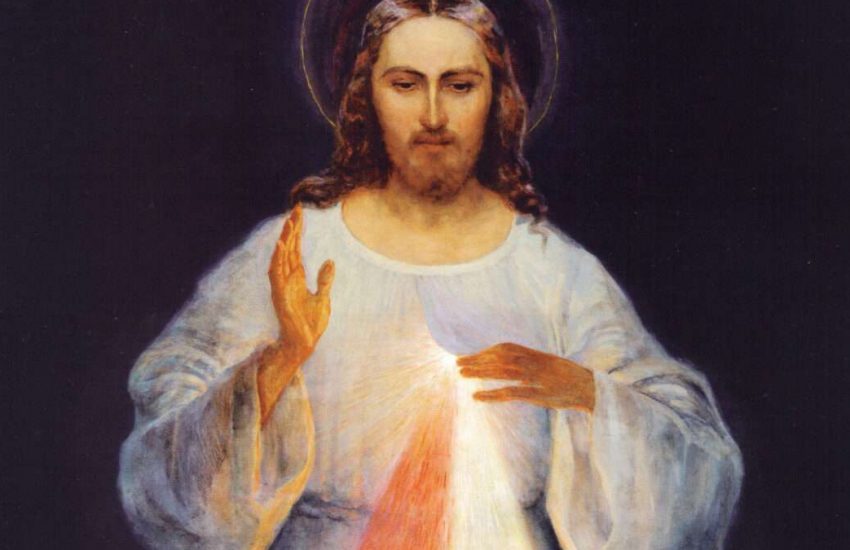Gospel For Today – 2nd Sunday of Advent
REMIDNER: Today is the final Sunday Mass on campus of the semester (7:30pm). For those sticking around over the winter break, Masses at St. Mary's are at 9:00 & 11:00am Sunday mornings.
SECOND SUNDAY OF ADVENT (A)
The very first thing that the faithful are supposed to hear when Mass begins is something called the Introit (Entrance) Antiphon. In many parishes this is replaced by a hymn, but ideally we hear the antiphon for the day, which is part of the liturgy of the Mass and taken either from the Roman Missal or the Roman Gradual (a music book for the Roman Rite). The Introit is taken from the scriptures and sets the tone for the liturgy of that day. The Introit Antiphon for the Second Sunday of Advent is from Isaiah 30:19, 30. "O people of Sion, behold, the Lord will come to save the nations, and the Lord will make the glory of His voice heard in the joy of your heart."
This antiphon is announcing the theme of the day. That theme is our anticipation of salvation; a salvation which will manifest itself in joy. Salvation and joy. How do we get there? How do we make that salvation and joy our own? Our readings today give us a road map.
JUST JUDGMENT
Our first reading, like our entrance antiphon, is from the prophet Isaiah. Isaiah 11:1-10 speaks of judgment, but not the frightening kind of judgment. That word "judgment" to us has connotations of harshness. None of us likes to be judged. When we call someone "judgmental" it is never a good thing. And that is because we fear being judged unfairly. We fear being judged too harshly. We fear being judged by someone who has no place to judge us. But this is not the kind of judgement that Isaiah speaks of. "Not by appearance shall he judge, nor be hearsay shall he decide, but he shall judge the poor with justice, and decide aright for the land's afflicted." The judgement that Isaiah foretells is one in which everyone – even those who do not normally receive fair judgment in this world, such as the poor – shall be judged fairly, with justice, based not on external appearances but on the internal worthiness of their heart.
This divine judgment, then, is different from our human judgment in that it can only bring peace. For when we are judged with perfect and complete justice, then even those who are condemned know that they are condemned worthily and fairly. We need have no fear of being judged unfairly by the Lord. Our only fear should be fear of our own personal sin, in which we make ourselves unworthy of His acceptance; make our hearts too hard to ask for His mercy. The Lord's judgment is nor harsh, but fair and just. "Justice shall flourish in his time, and fullness of peace forever," as our Psalm today says.
HOPE
In the second reading today, St. Paul begins by telling us, "Whatever was written previously was written for our instruction, that by endurance and by the encouragement of the Scriptures we might have hope" (Rm 15:4). When Paul mentions "what was written previously," he has in mind the Old Testament, the Hebrew Scriptures that foretold the coming of Christ. The Catechism of the Catholic Church defines hope as "the theological virtue by which we desire the kingdom of heaven and eternal life as our happiness, placing our trust in Christ's promises and relying not on our own strength, but on the help of the grace of the Holy Spirit" (CCC 1817). Hope tells us that there is an answer to that desire for happiness that comes from within our soul. Hope tells us that Christ is waiting for us to come to Him, and that He will provide us with the graces we need to get there. Hope tells us that though we struggle in this life, the act of struggling itself is an act of love for God. Hope allows us to know that the justice Isaiah foretells can be ours, as well as its accompanying peace.
REPENTANCE
Our Gospel reading today is preceded by the Alleluia verse: "Prepare the way of the Lord, make straight His paths, all flesh shall see the salvation of God" (Lk 3:4, 6). The prophet Isaiah spoke of a voice in the wilderness that would say, "Prepare the way of the Lord." That voice is John the Baptist, who today tells us, "Repent, for the kingdom of heaven is at hand!" (Mt 3:1). John tells us to prepare for the coming of the Lord, the coming of the just judge, the one who is an answer to our hope. And how do we prepare for His coming? We repent.
"Repent" is another of those words that sound scary to our ears because of certain negative connotations. But it simply means reorientation. When we repent, we reorient our lives by turning away from the bad and turning towards the good. If we have hope in salvation, if we have faith in Christ, then we must turn away from anything in our lives that would lead us away from Him and reorient ourselves toward our goal. The Catechism says, "Interior repentance is a radical reorientation of our whole life, a conversion to God with all our heart, an end of sin, a turning away from evil, with repugnance toward the evil actions we have committed" (CCC 1431).
The Catechism goes on to talk about a "salutory pain" that often accompanies repentance, because we realize just how harmful our previous sins are, and how much they have wounded Christ whom we love; so we are rightly saddened by our past transgressions. But our repentance does not leave us in sadness. It spurs us on to reject those sins and to reorient our lives for Christ. We no longer wish to offend Him, but to love Him and do what is pleasing in His sight. Our repentance, if lived out, leads us not to sorrow, but to joy.
JOY
Just as there is a proper antiphon which should be sung at the beginning of Mass, there is also a proper antiphon to be sung during Communion. As we receive Communion today, the Second Sunday of Advent, we ideally hear this antiphon from Baruch. "Jerusalem, arise and stand upon the heights, and behold the joy which comes to you from God" (Bar 5:5, 4:36). This is the end of our encounter with Christ. This is the fruit of our hope and our repentance — joy.
Joy is one of the fruits of the Holy Spirit. It is the mark of one who has faith and hope. It is the mark of one in love with Christ. We are now back to where our liturgy began today with Isaiah's words. We have faith in the Lord who will come to save all nations. We hope in His just judgment. We have prepared the way for Him in our hearts by repenting of anything that may keep us from Him. And so our hearts are filled with joy.
Our Holy Father's recent apostolic exhortation is entitled Evangelii Gaudium, meaning "the Joy of the Gospel." It is mostly about evangelization – another word that can have negative connotations for many of us. It can be intimidating for us to share our faith and evangelize others. We don't feel prepared. We don't feel ready. Pope Francis assuages those fears. He tells us that evangelizing, sharing the gospel, should be an act of joy. And more than that, the greatest tool for so doing is simply to be joyful. Francis teaches, "anyone who has truly experienced God's saving love does not need much time or lengthy training to go out and proclaim that love… if we are not convinced, let us look at those first disciples, who, immediately after encountering the gaze of Jesus, went forth to proclaim Him joyfully: 'We have found the Messiah!'" (EG 120).
People see a joyful person and say, "I want what they have. I want that joy." Today, in the liturgy, we have been given the road map to joy. Follow it. Live it. Share it. Our Lord will come to save us all. The glory of His voice can be heard in the joy of your heart.
Pax Christi,
Matt
—

WCU Catholic Campus Ministry
Matthew Newsome, MTh, campus minister
(828)293-9374 | POB 2766, Cullowhee NC 28723


